Want it delivered daily to your inbox?
-
There are more real estate agents per 1,000 jobs in Florida, Texas, Colorado, and Arizona, see the first chart. With many homeowners locked into sub-4% mortgage rates, existing home sales are at the lowest level since 2010, and the number of home sales per real estate agent is at the lowest level in decades, see the second chart.
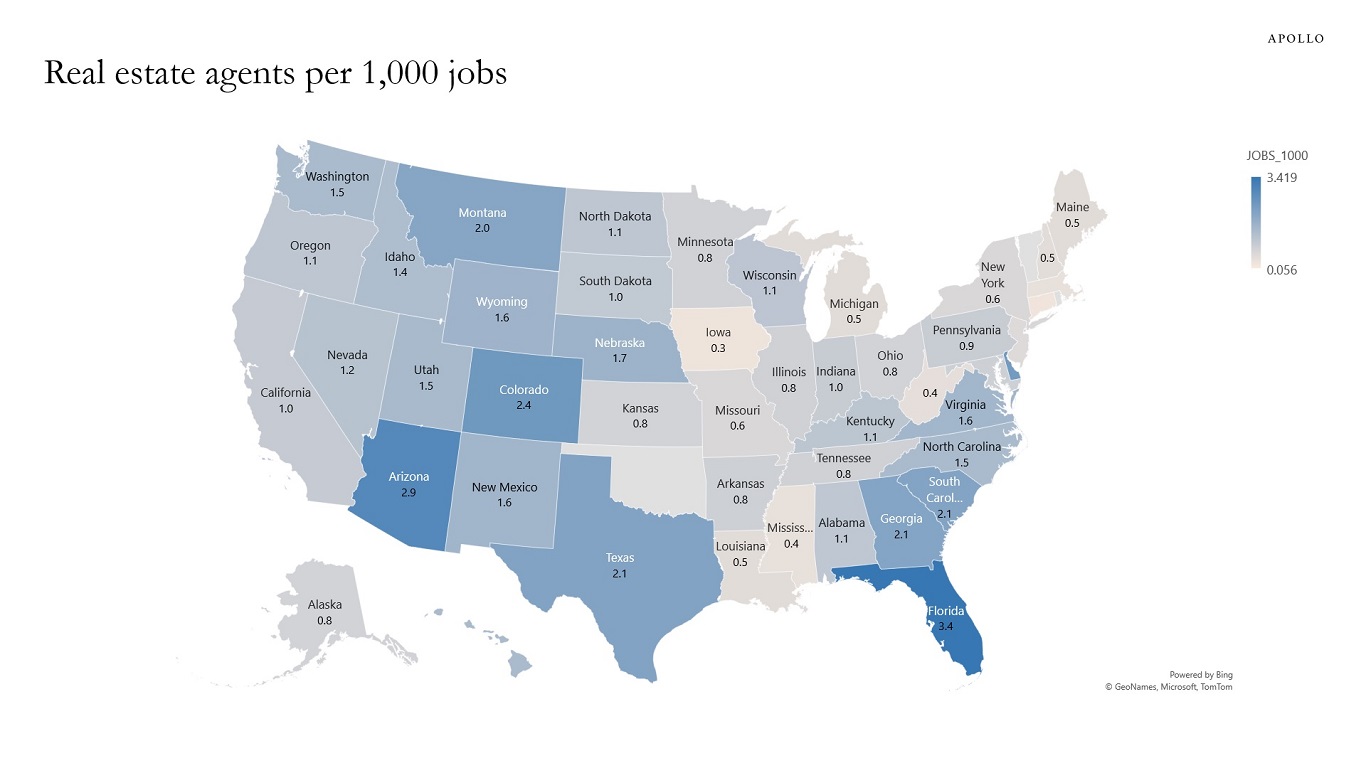
Source: BLS, Apollo Chief Economist. Note: Data for May 2022. 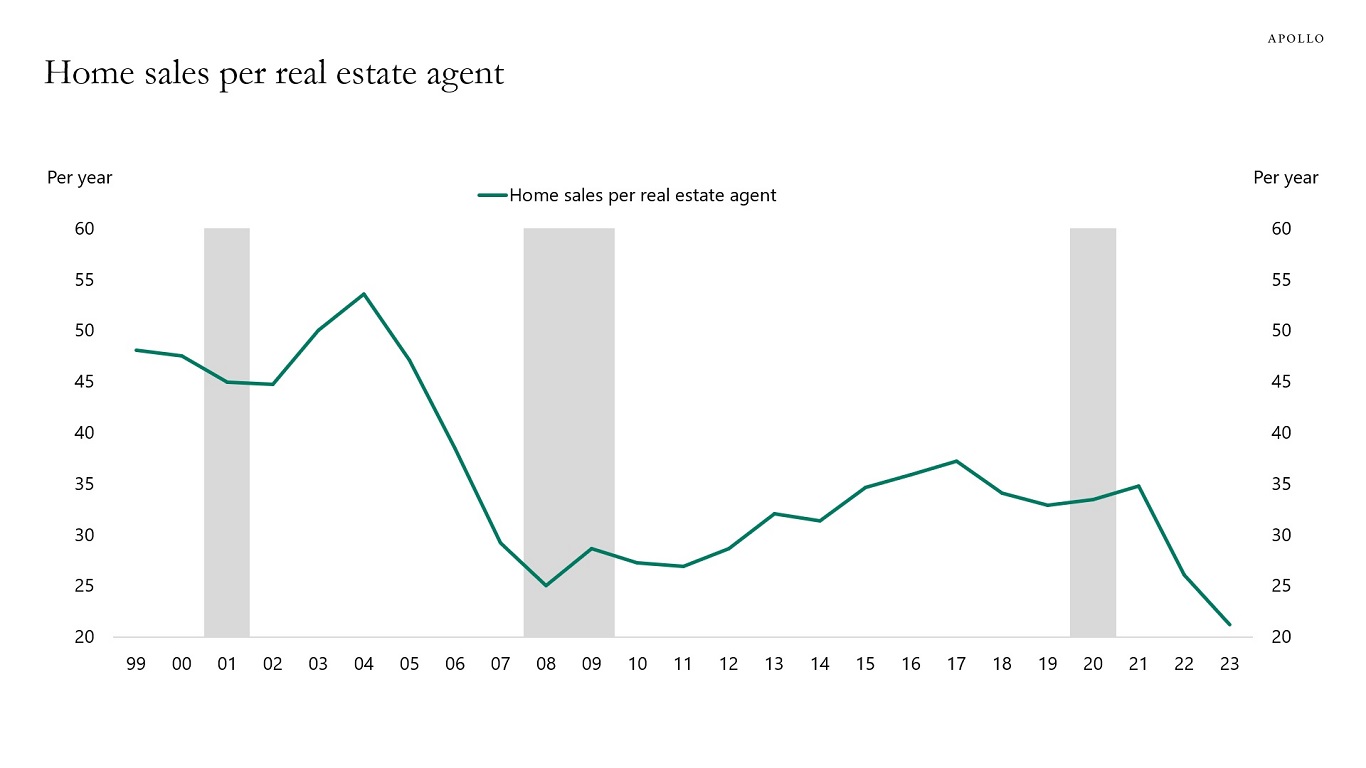
Source: NAR, BLS, Haver Analytics, Apollo Chief Economist See important disclaimers at the bottom of the page.
-
The hype around AI is starting to fade, see chart below.
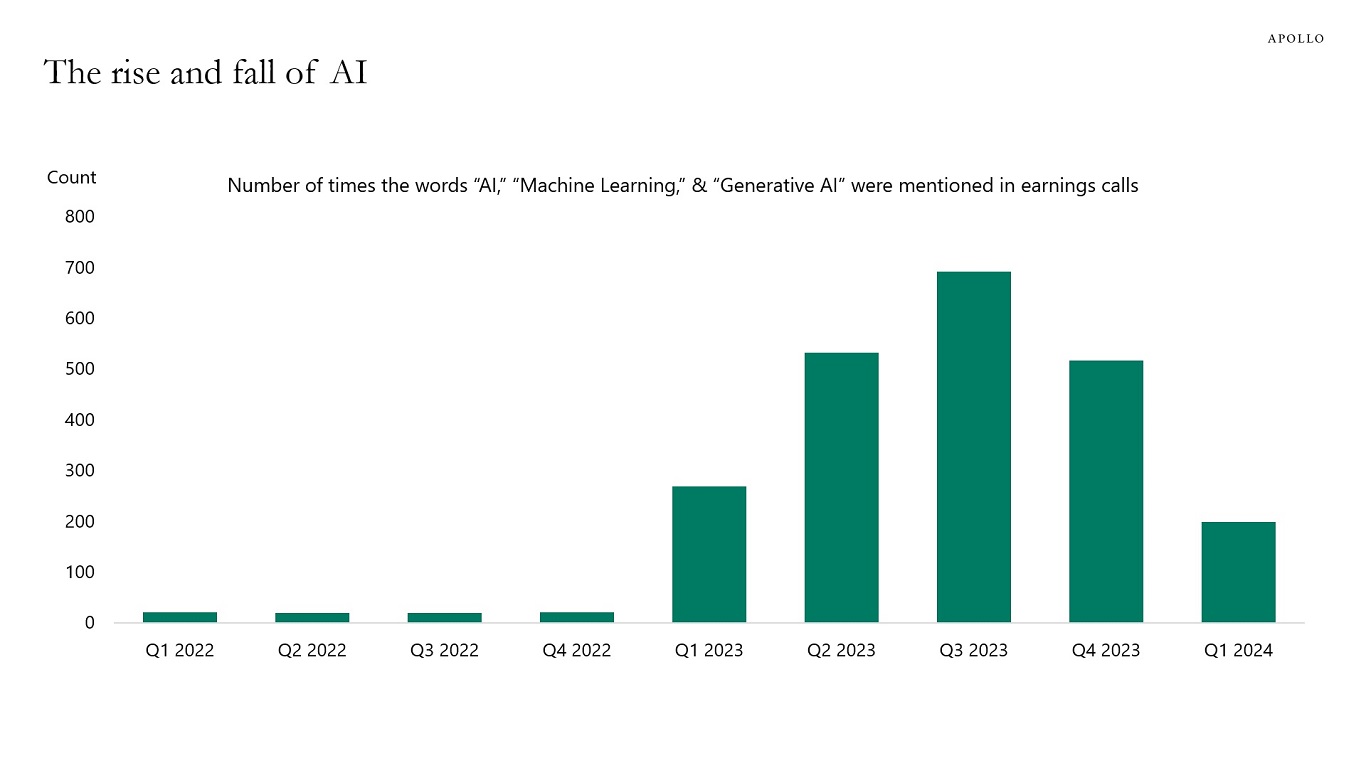
Source: Bloomberg, Apollo Chief Economist See important disclaimers at the bottom of the page.
-
Current drivers of credit demand are retail and pensions seeking higher all-in yields, and annuity sales driven by more baby boomers retiring and by a higher level of interest rates giving policyholders higher monthly payments, see chart below. For more, see also our latest credit market outlook here.
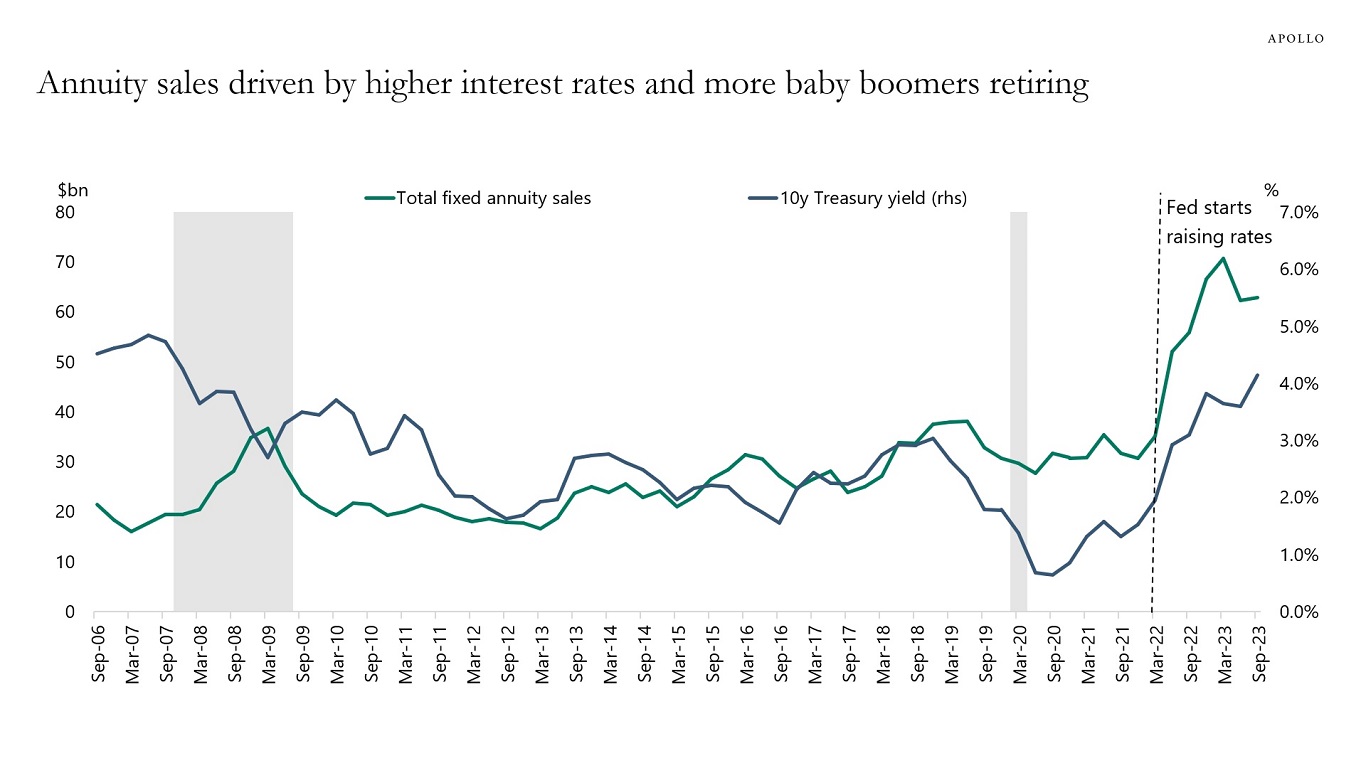
Source: Bloomberg, Apollo Chief Economist See important disclaimers at the bottom of the page.
-
Earnings expectations have diverged for the S&P 7 and the S&P 493, see chart below.
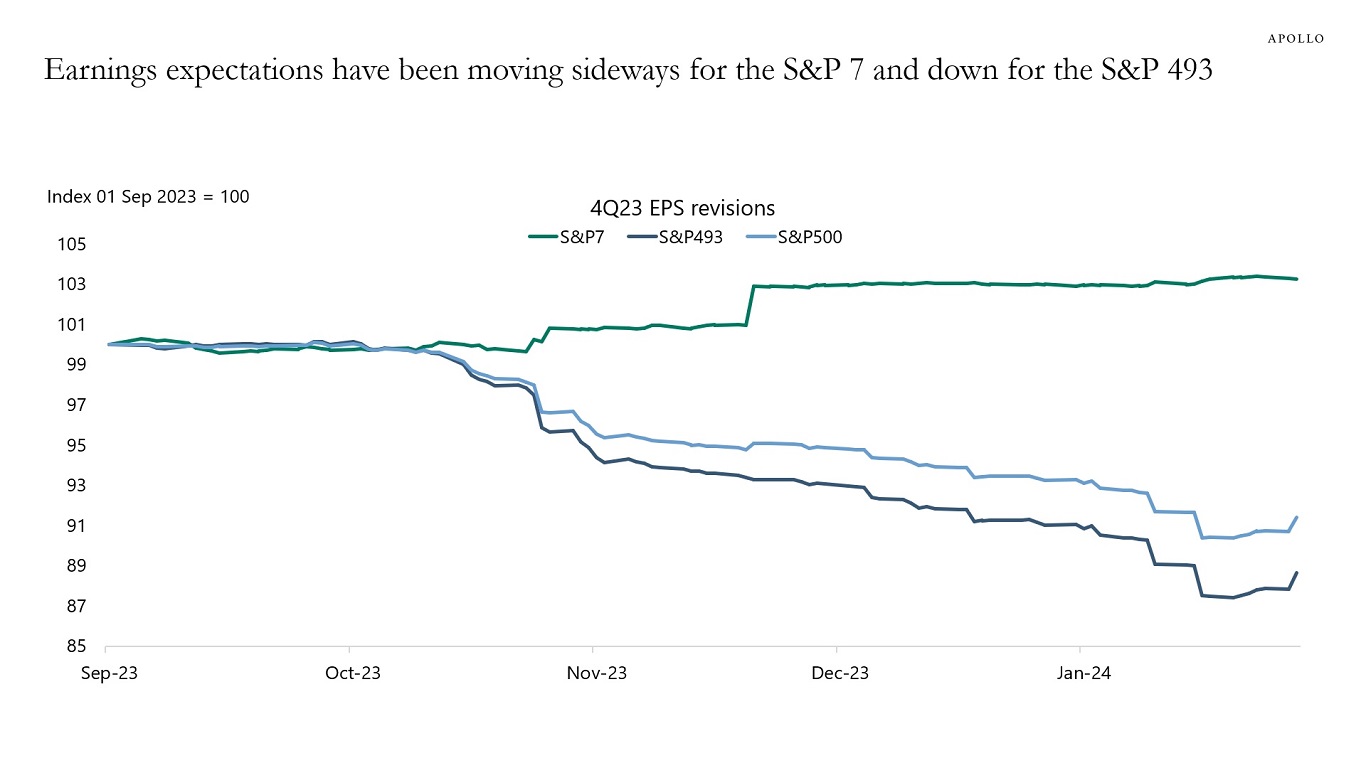
Source: FactSet, Apollo Chief Economist See important disclaimers at the bottom of the page.
-
Markets fluctuate between the “lagged effects of Fed hikes are slowing down consumers, firms, and bank lending,” and “the easing of financial conditions since the December Fed pivot has boosted growth, including January hiring,” see chart below.
The bottom line is that what currently looks like a soft landing is a fragile equilibrium, and there is still more than 50% chance we will end up in either a hard landing scenario where the Fed cuts faster than the market expects or a no landing scenario where the Fed has to raise rates again. It makes sense that rates volatility and swaption volatility are high relative to VIX.
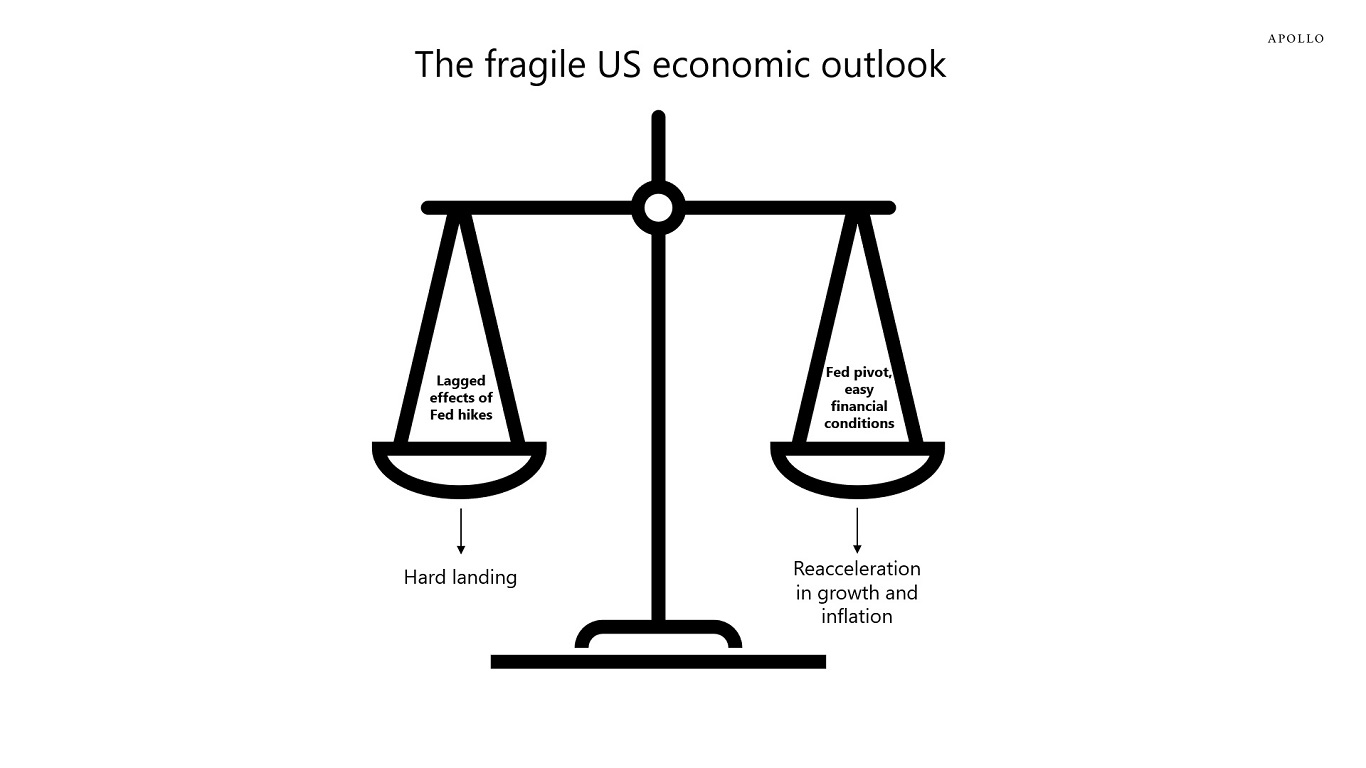
Source: Apollo Chief Economist See important disclaimers at the bottom of the page.
-
China began its one-child policy in 1980 and ended it in 2016. In 2021, it started its three-child policy, encouraging couples to have three children. The UN projects that China’s population will decline from 1.4 billion today to 800 million by the end of this century. China’s demographic headwinds have significant implications for growth, savings, and FX reserve accumulation and, therefore, Chinese appetite for buying US Treasuries.
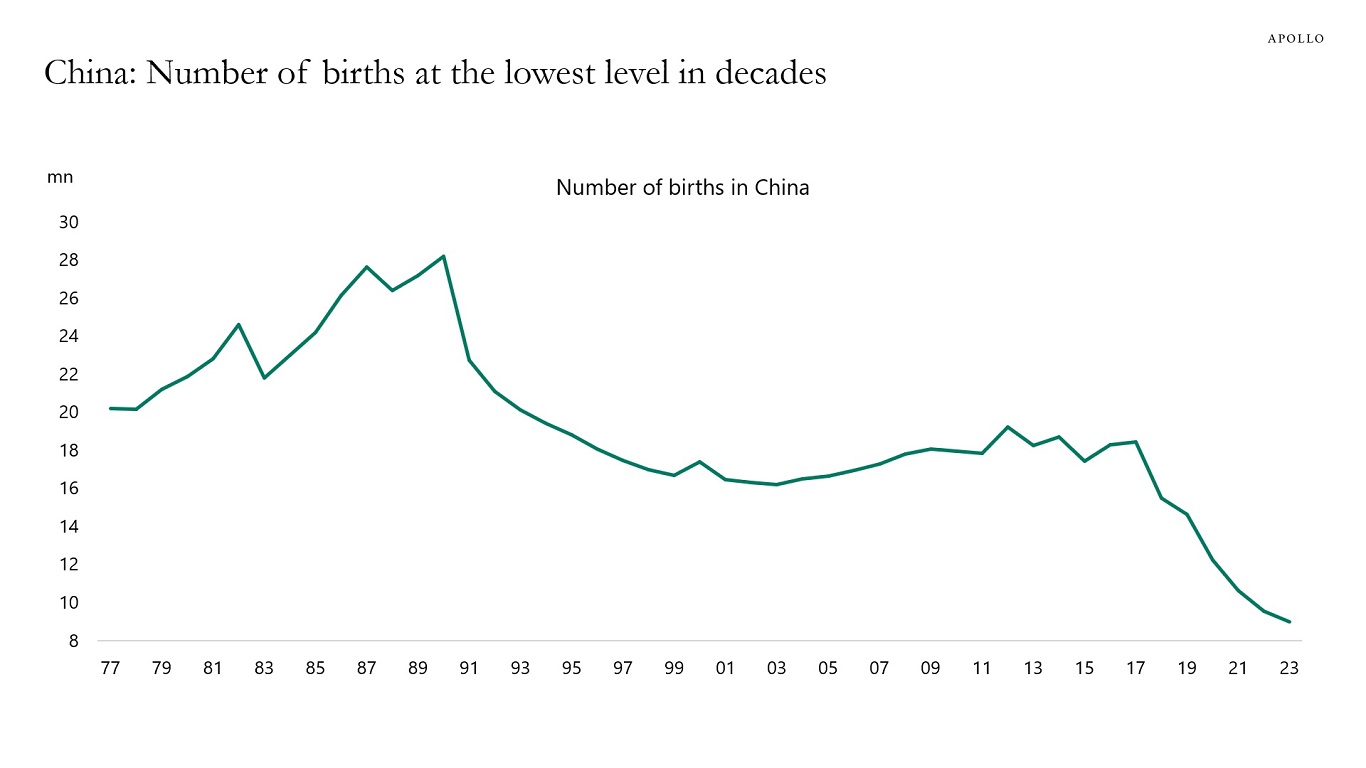
Source: UN, National Bureau of Statistics of China, Apollo Chief Economist See important disclaimers at the bottom of the page.
-
Our latest outlook for the housing market is available here, key charts below.
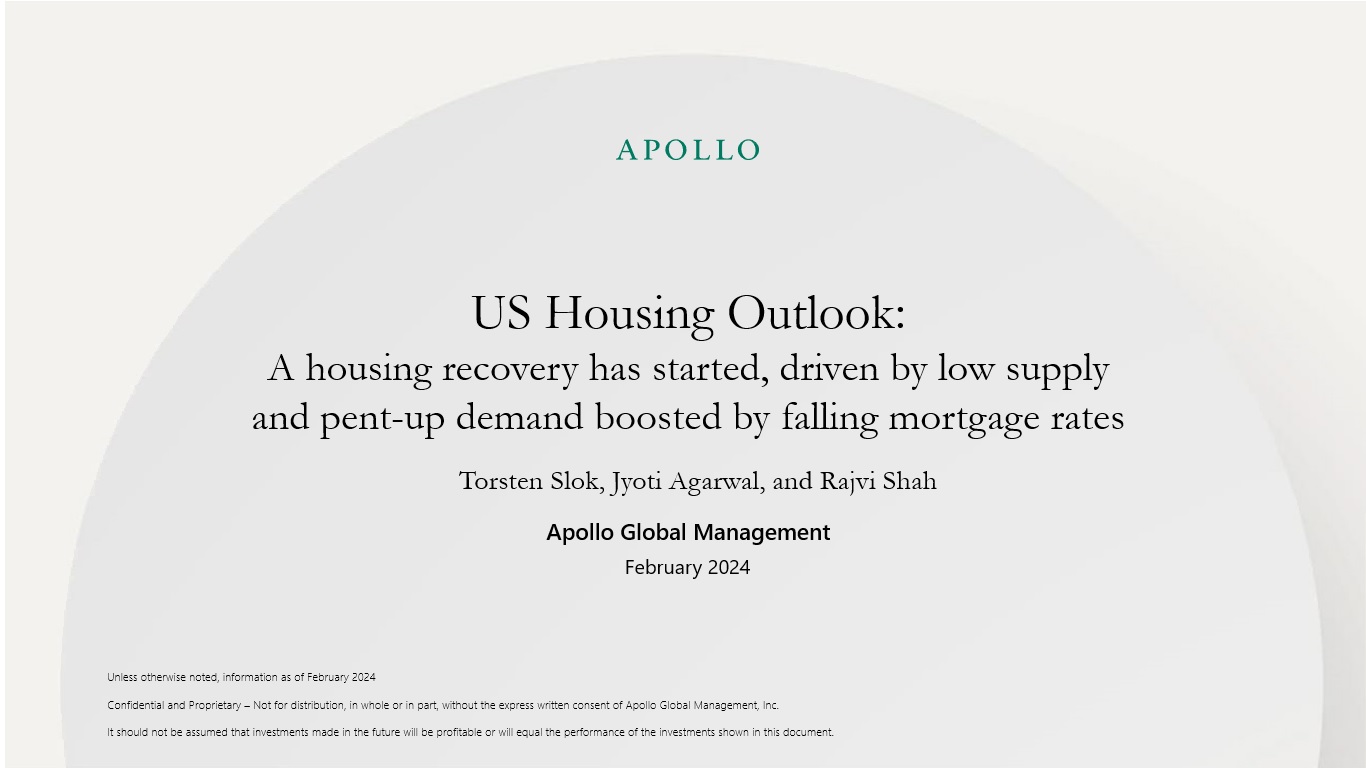
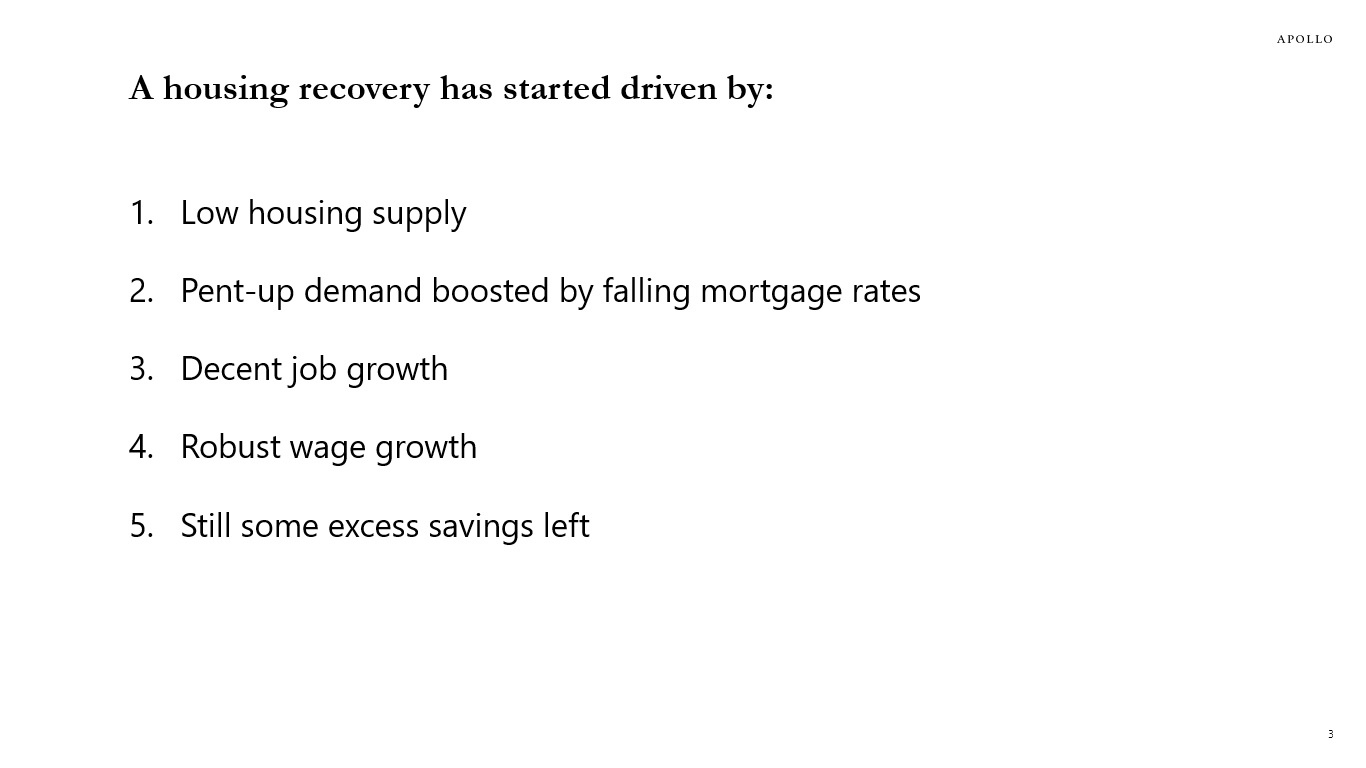
Source: Apollo Chief Economist 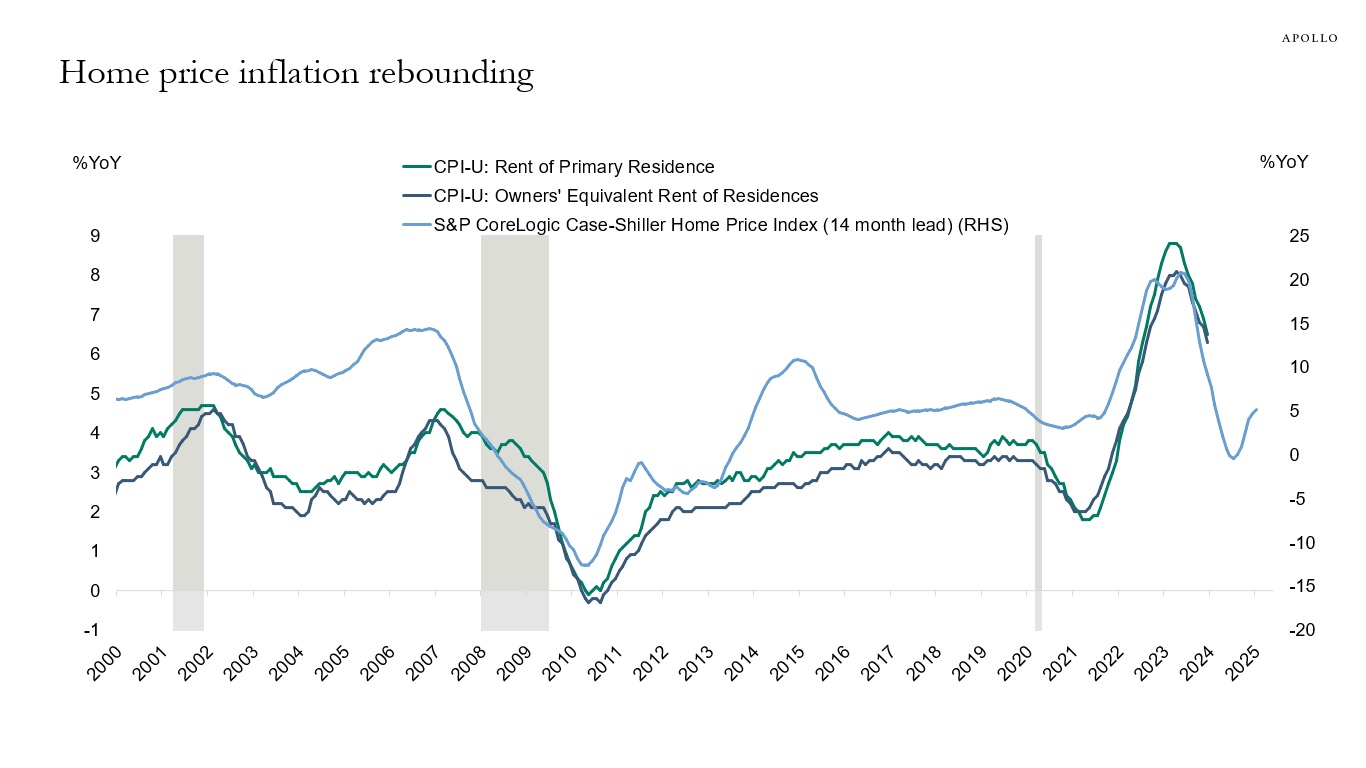
Source: Haver Analytics, BLS, S&P, Apollo Chief Economist 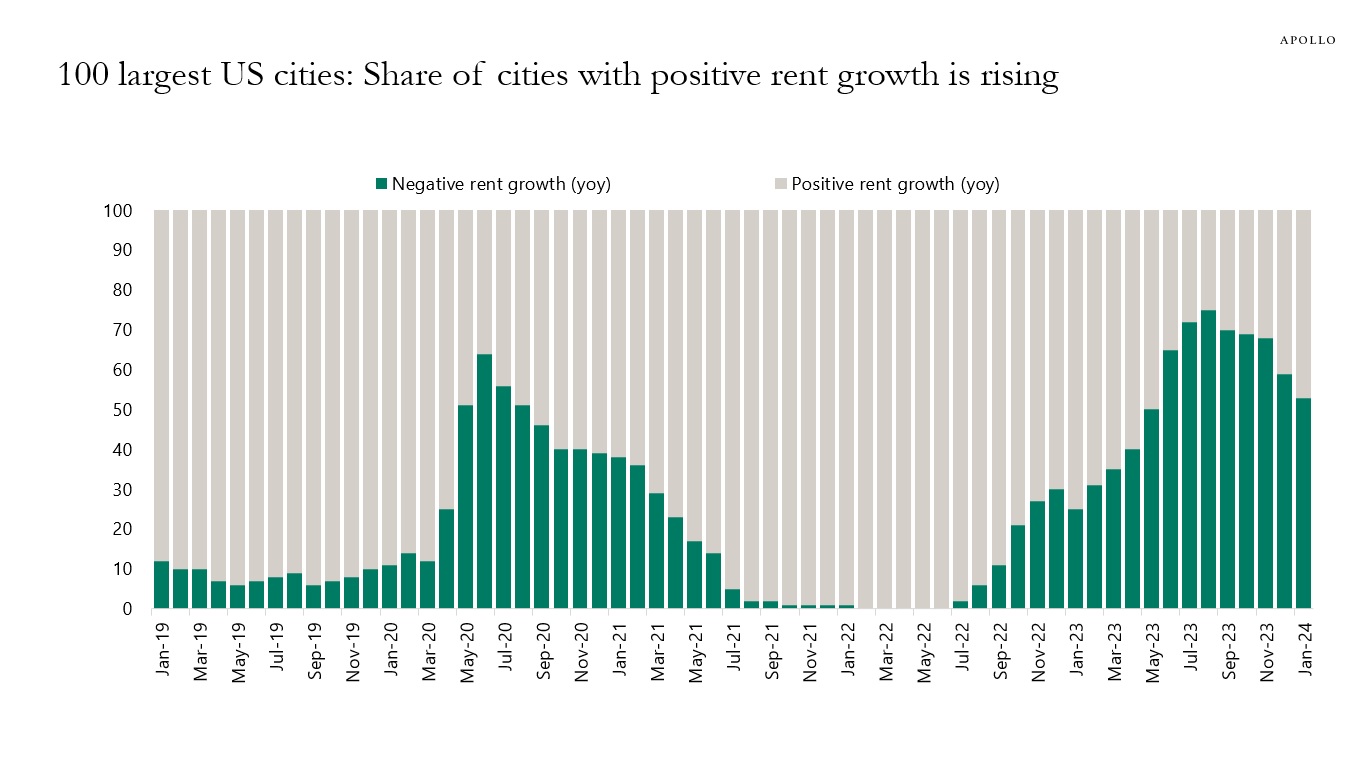
Source: Apartmentlist.com, Apollo Chief Economist 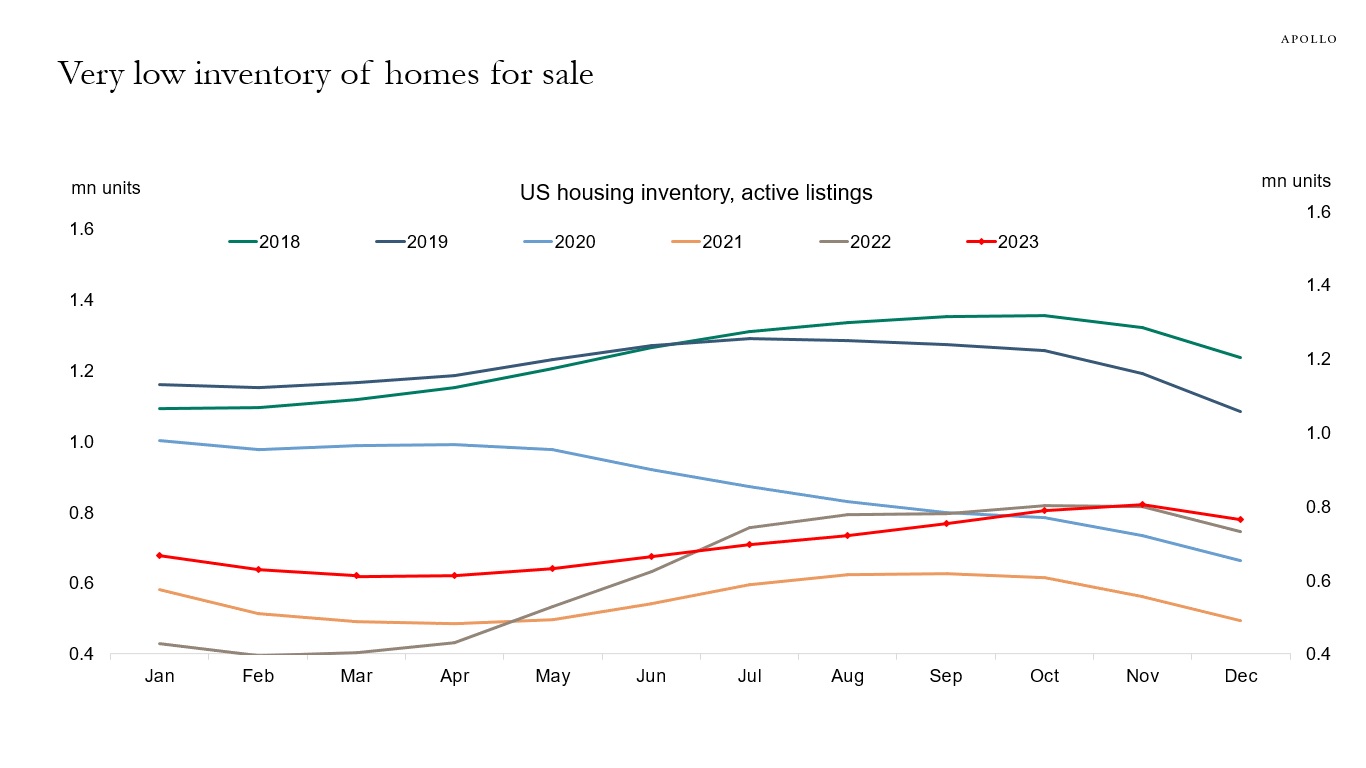
Source: Realtor.com, Apollo Chief Economist 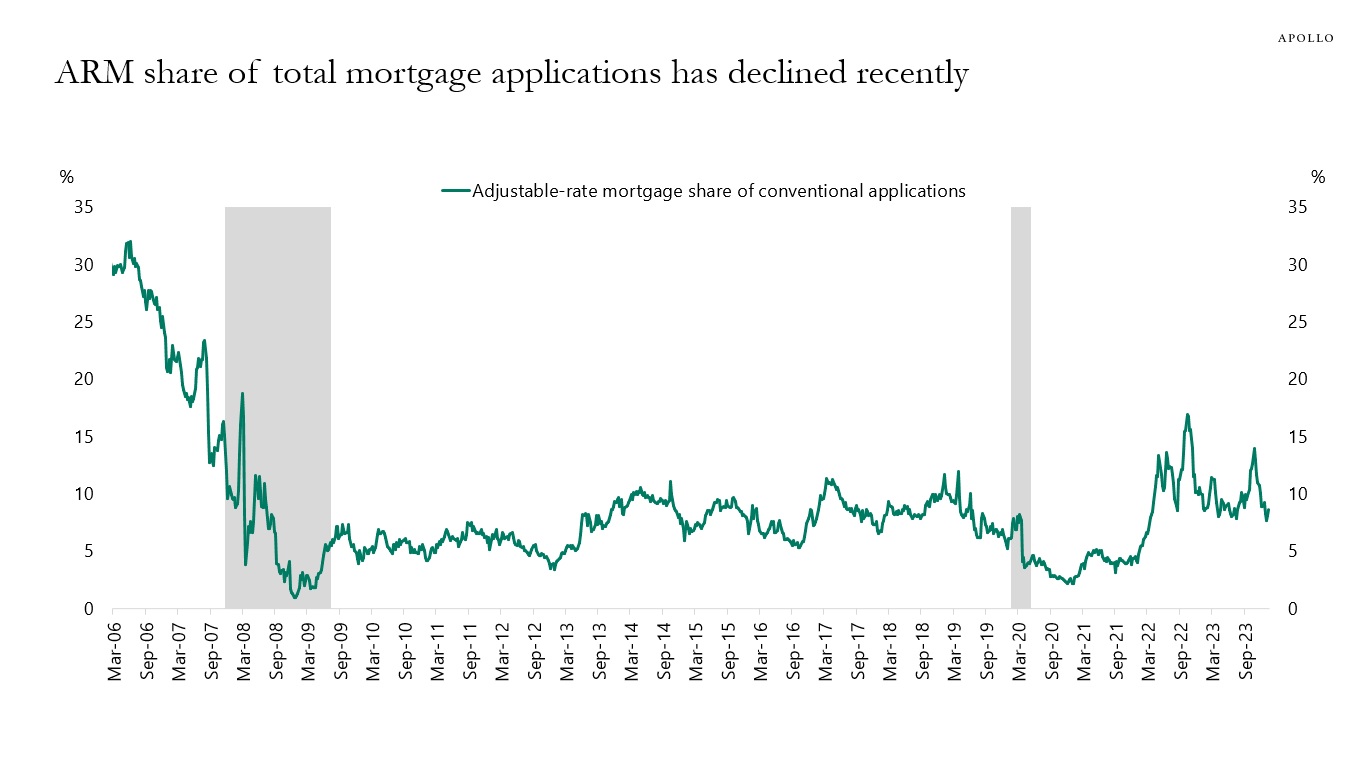
Source: MBA, Bloomberg, Apollo Chief Economist (Note: It is 5-year ARM) 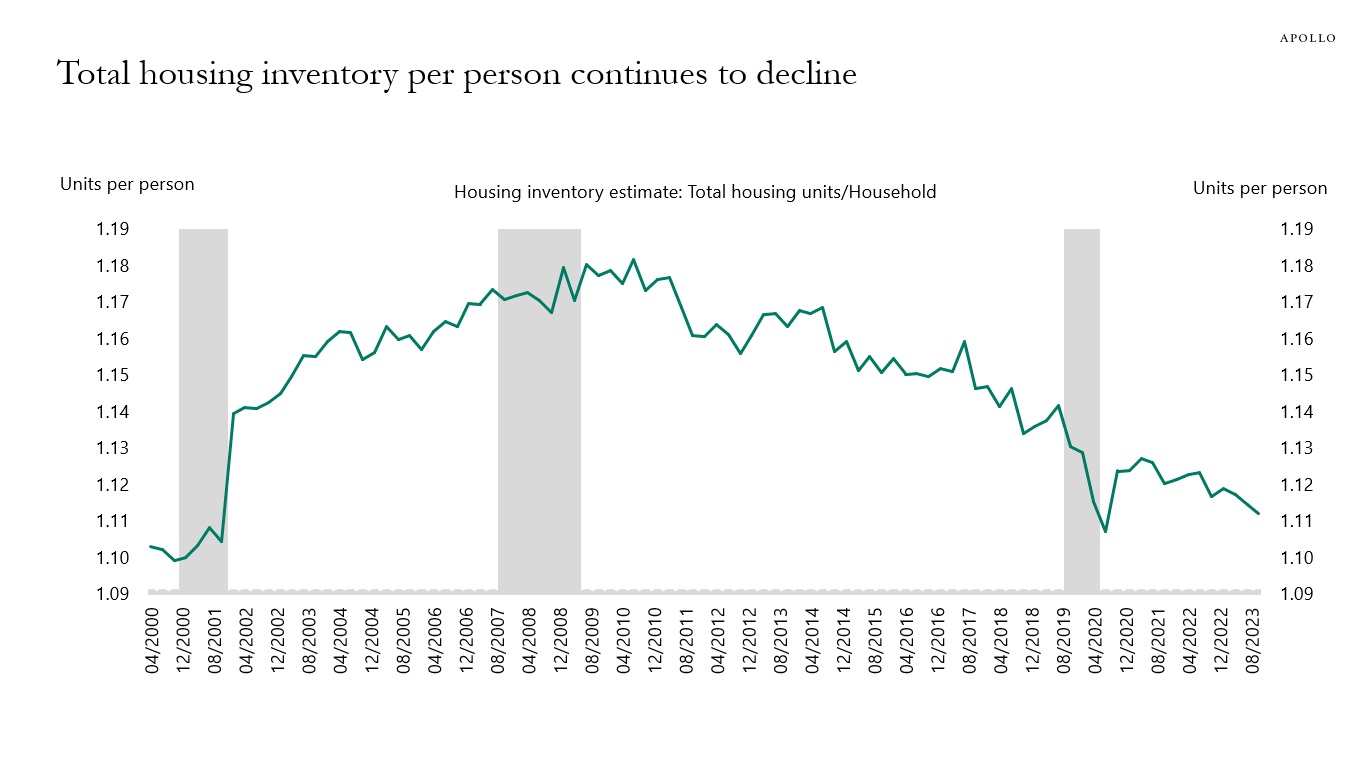
Source: Census Bureau, FRED, Apollo Chief Economist See important disclaimers at the bottom of the page.
-
Our updated banking sector chart book is available here, key charts below.

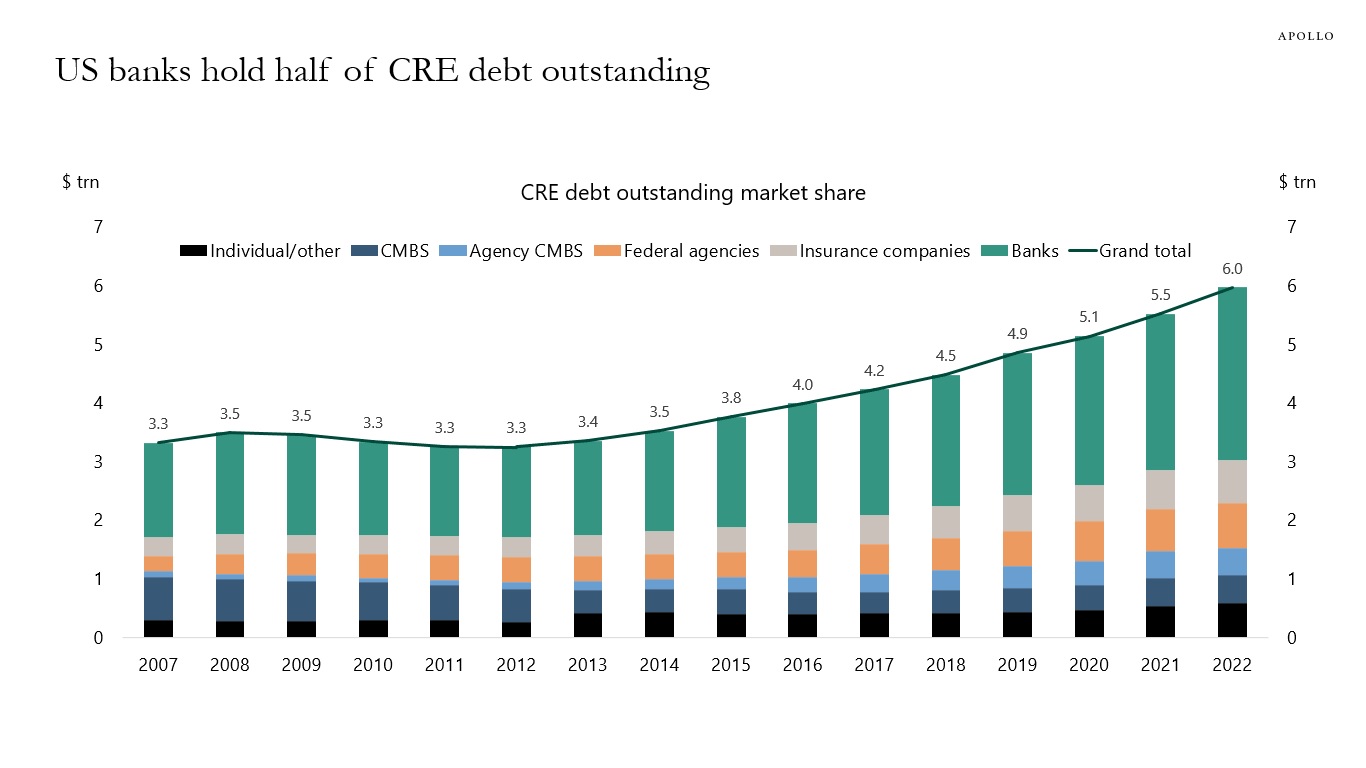
Source: S&P Capital IQ, Apollo Chief Economist 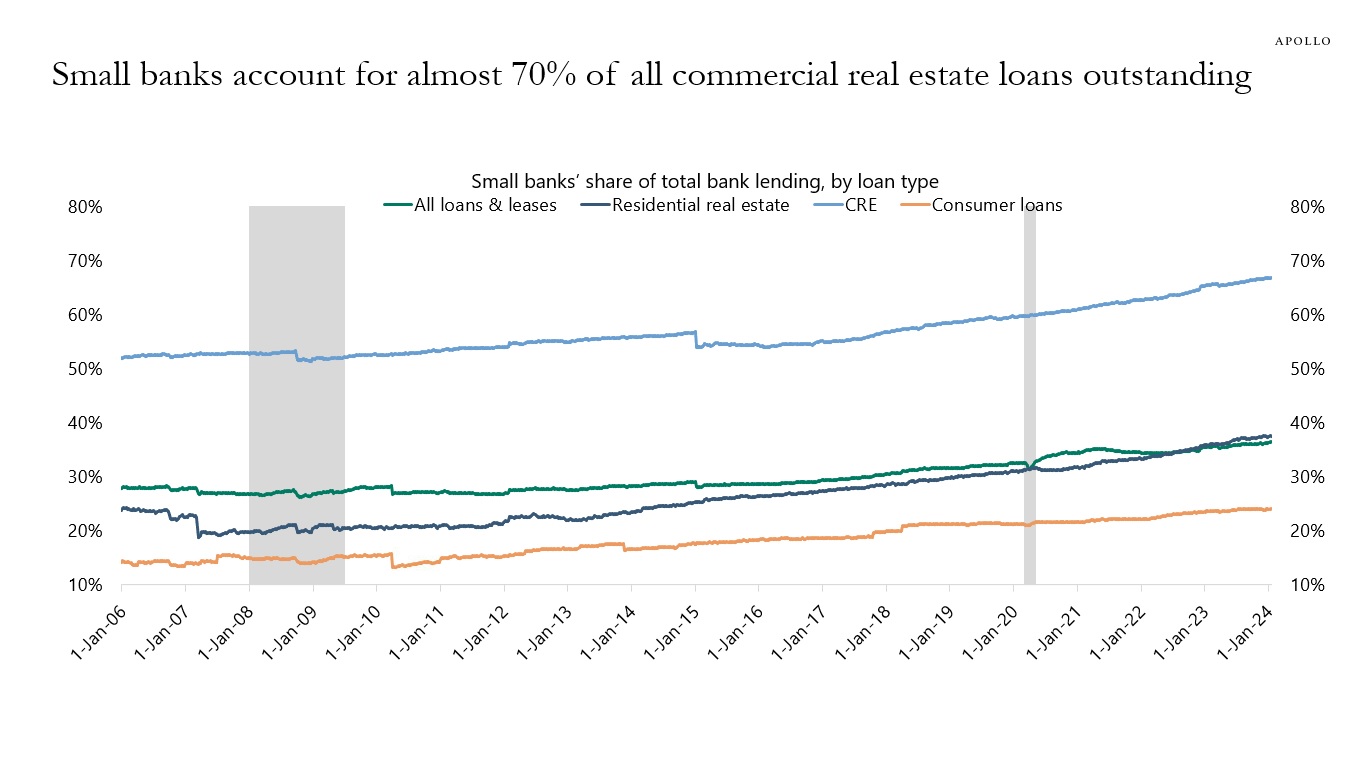
Source: Federal Reserve Board, Haver Analytics, Apollo Chief Economist 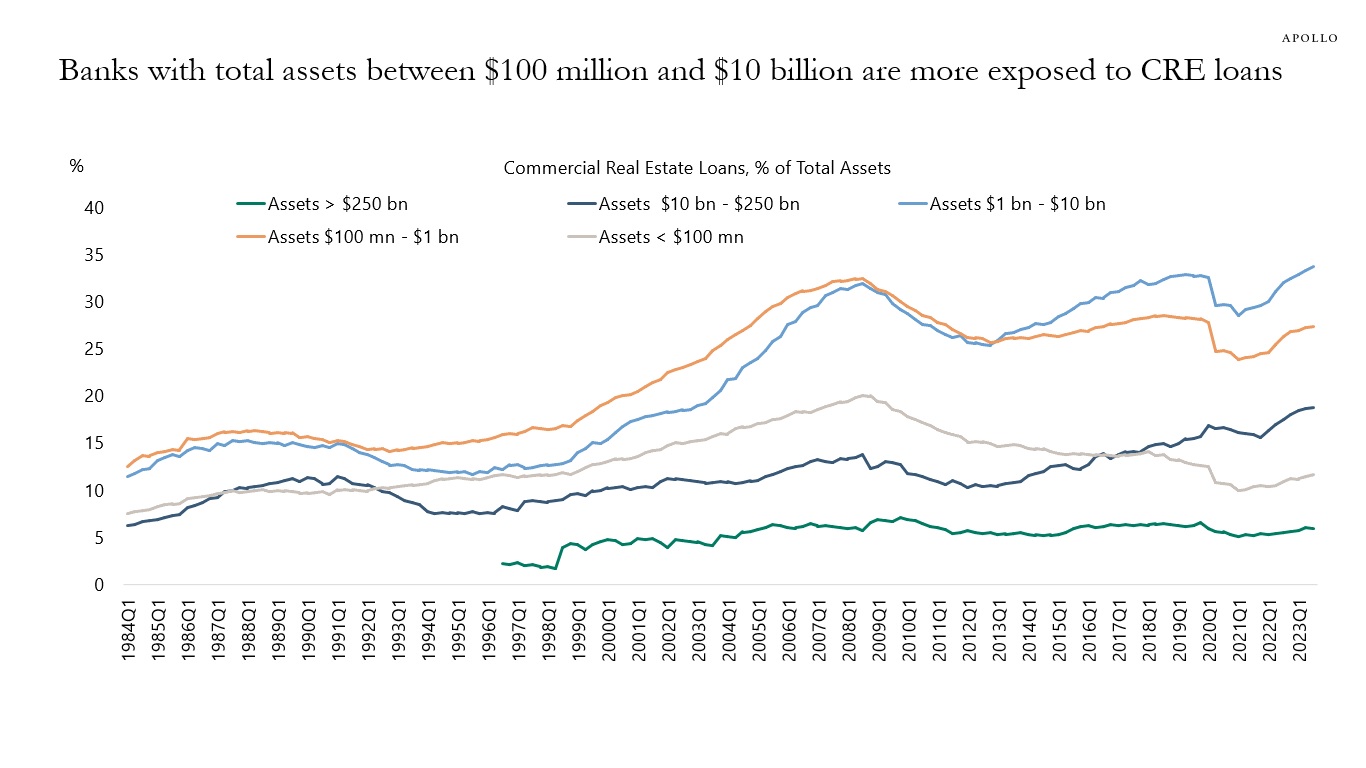
Source: FDIC, Apollo Chief Economist 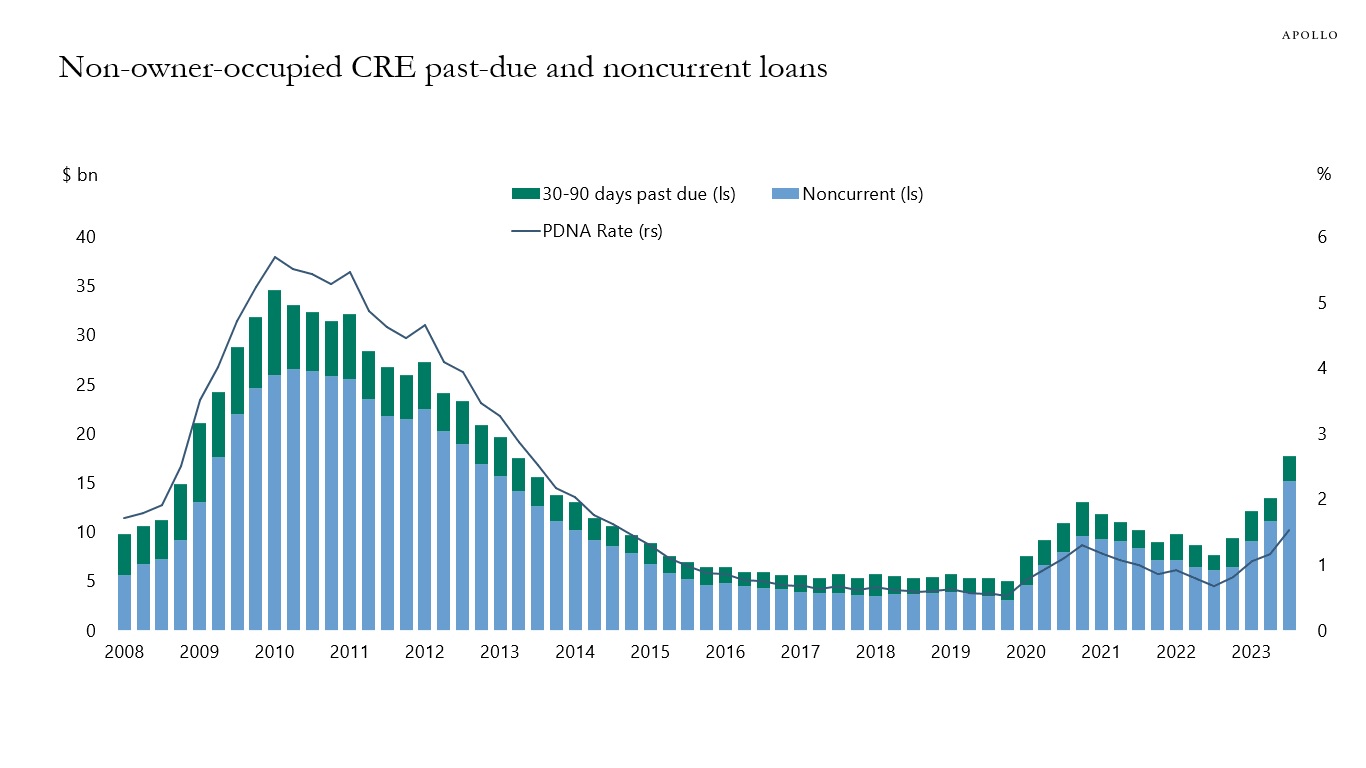
Source: FDIC, Apollo Chief Economist. (PDNA stands for Past Due and Non-Accrual rate defined as loans that are past due and are in non-accrual status.) 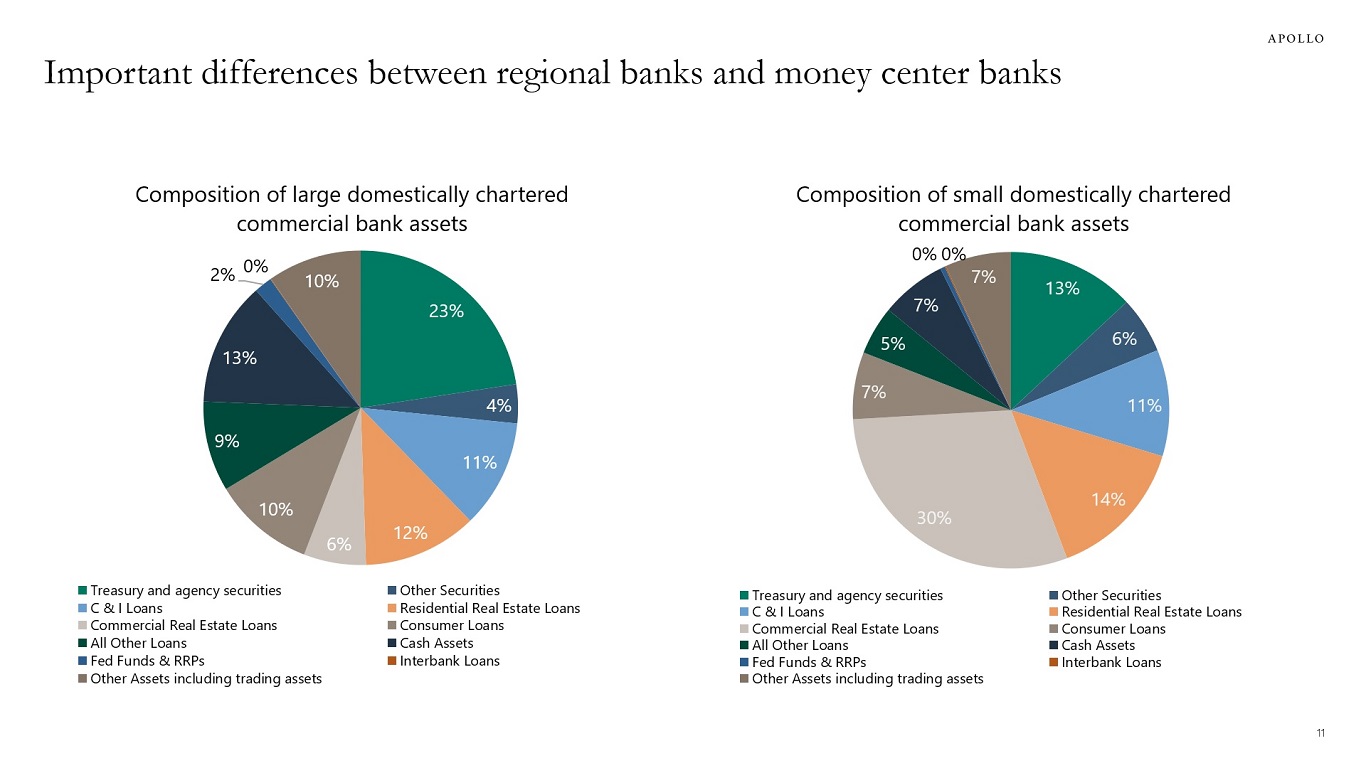
Source: FRB, Haver Analytics, Apollo Chief Economist See important disclaimers at the bottom of the page.
-
About 18% of China’s population is older than 60. Over the coming decades, that share will rise to 32%, higher than in the US, see chart below. Our latest outlook for China is available here.
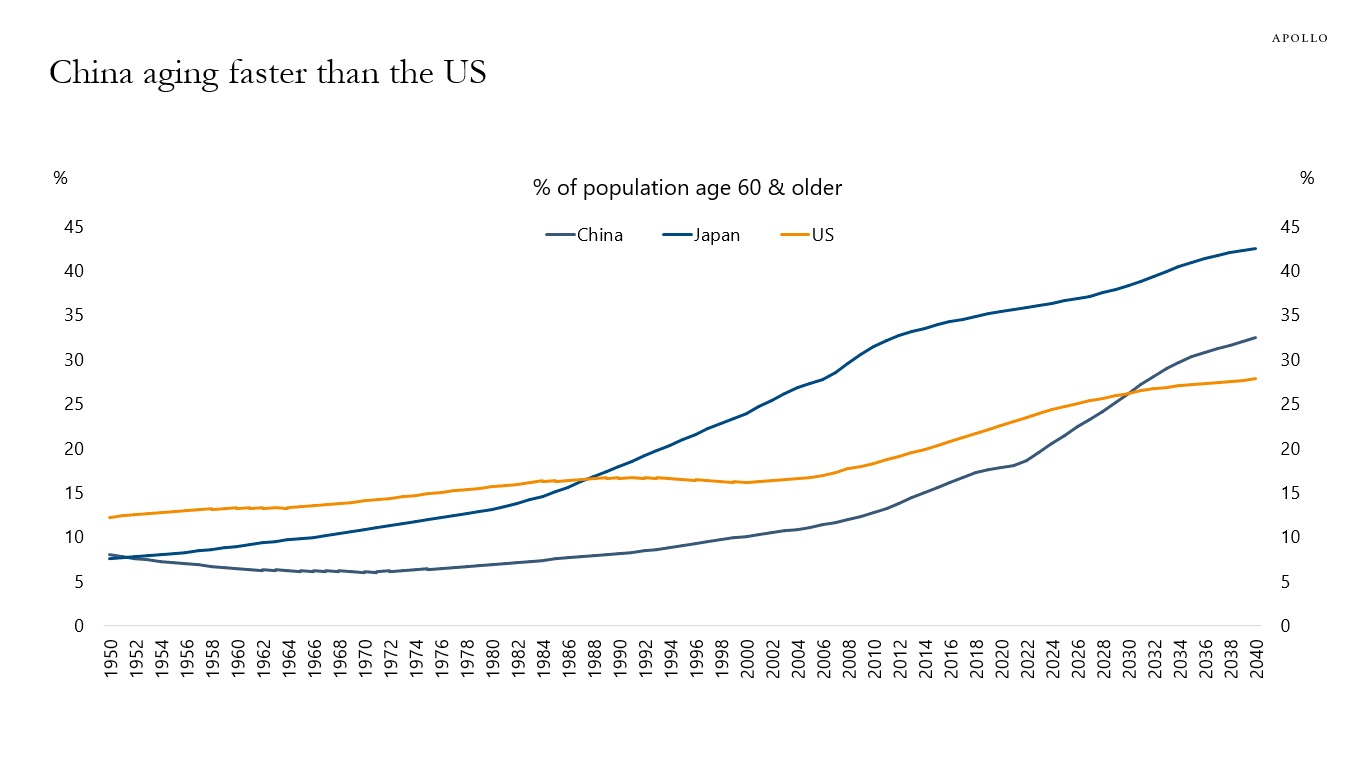
Source: UN, Haver Analytics, Apollo Chief Economist See important disclaimers at the bottom of the page.
-
Comparing the growth in private credit with the growth in other sources of financing for corporates shows that private credit has been growing much slower than public credit and credit extended by banks, see chart below.
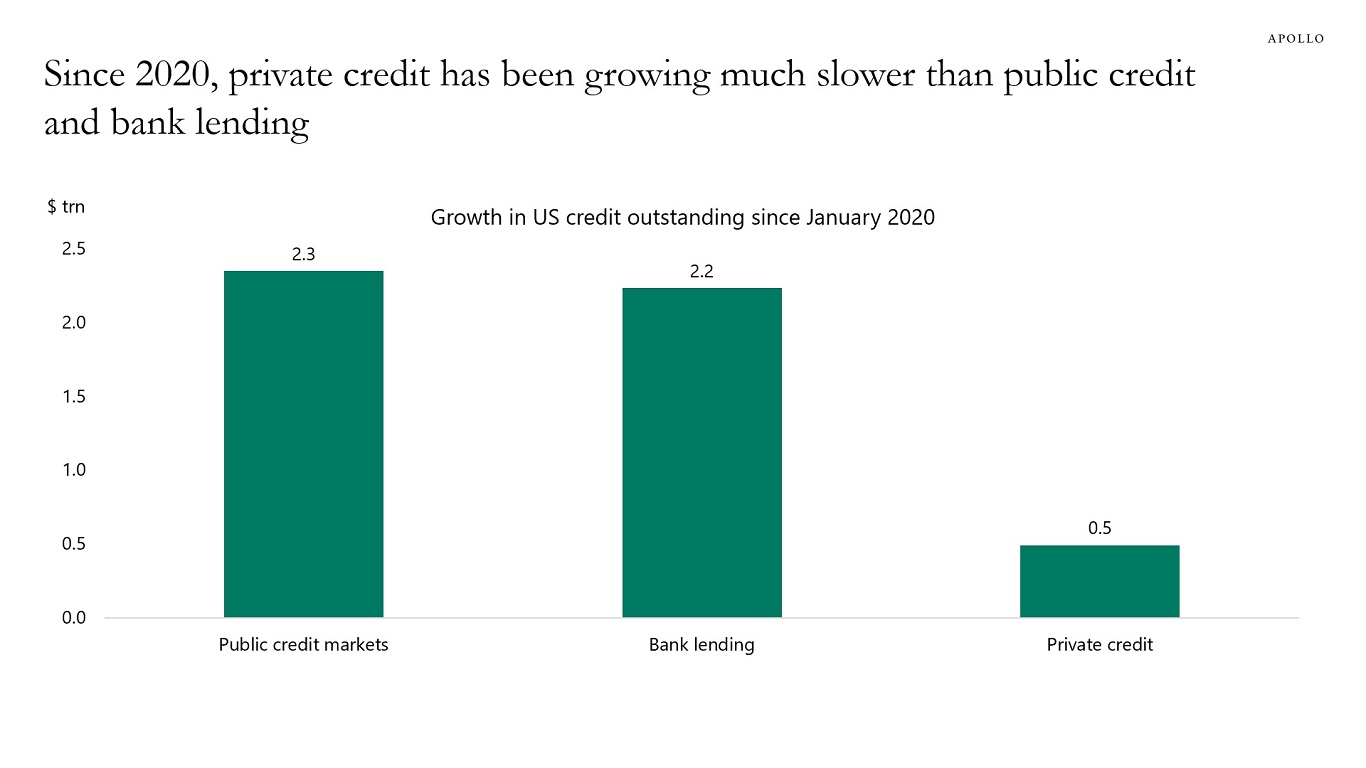
Source: FRB, ICE BofA, Bloomberg, Preqin, Apollo Chief Economist. (Note: Public credit markets include HY, IG, and leveraged loans. Bank lending includes loans & leases in bank credit. All commercial banks and private credit is dry powder + unrealized value/NAV of all the funds in the private debt space.) See important disclaimers at the bottom of the page.
This presentation may not be distributed, transmitted or otherwise communicated to others in whole or in part without the express consent of Apollo Global Management, Inc. (together with its subsidiaries, “Apollo”).
Apollo makes no representation or warranty, expressed or implied, with respect to the accuracy, reasonableness, or completeness of any of the statements made during this presentation, including, but not limited to, statements obtained from third parties. Opinions, estimates and projections constitute the current judgment of the speaker as of the date indicated. They do not necessarily reflect the views and opinions of Apollo and are subject to change at any time without notice. Apollo does not have any responsibility to update this presentation to account for such changes. There can be no assurance that any trends discussed during this presentation will continue.
Statements made throughout this presentation are not intended to provide, and should not be relied upon for, accounting, legal or tax advice and do not constitute an investment recommendation or investment advice. Investors should make an independent investigation of the information discussed during this presentation, including consulting their tax, legal, accounting or other advisors about such information. Apollo does not act for you and is not responsible for providing you with the protections afforded to its clients. This presentation does not constitute an offer to sell, or the solicitation of an offer to buy, any security, product or service, including interest in any investment product or fund or account managed or advised by Apollo.
Certain statements made throughout this presentation may be “forward-looking” in nature. Due to various risks and uncertainties, actual events or results may differ materially from those reflected or contemplated in such forward-looking information. As such, undue reliance should not be placed on such statements. Forward-looking statements may be identified by the use of terminology including, but not limited to, “may”, “will”, “should”, “expect”, “anticipate”, “target”, “project”, “estimate”, “intend”, “continue” or “believe” or the negatives thereof or other variations thereon or comparable terminology.






